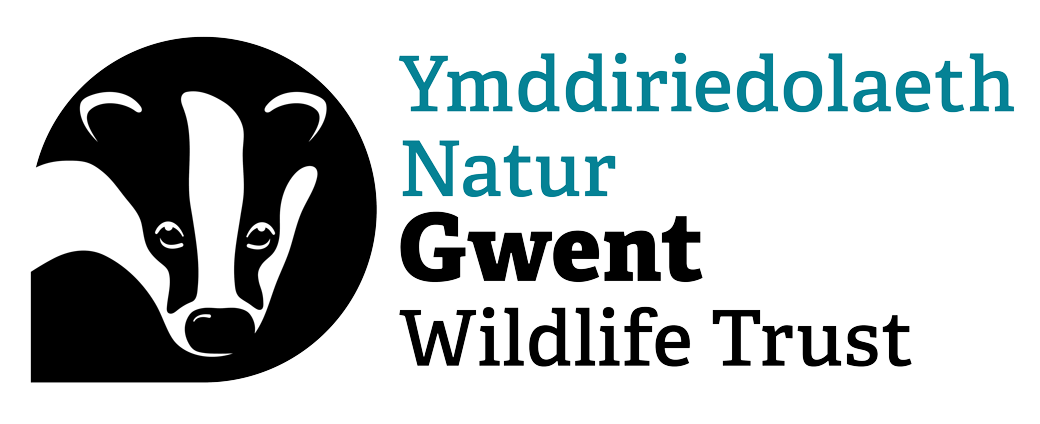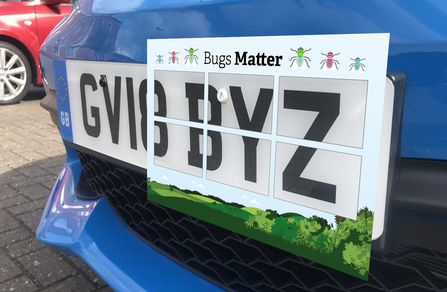The 2021 Bugs Matter findings, which are published in a report released by Kent Wildlife Trust and Buglife show that the number of insects sampled on vehicle number plates by citizen scientists across Gwent reduced by a staggering 40% between 2004 and 2021. These findings are consistent with research which has widely reported declining trends in insect populations globally.
Across the UK as a whole, flying insects declined by a troubling 60% between 2004 and 2021. The observed declines are statistically significant and are indicative of a worrying pattern.
The Bugs Matter project, led by Kent Wildlife Trust and Buglife, and supported by a number of other wildlife conservation organisations including Gwent Wildlife Trust, is one of the UK’s few citizen science surveys of insect abundance that generates important data.
Inspired by the ‘windscreen phenomenon’ (a term given to the general observation that people are seeing fewer insects squashed on the windscreens of their cars today compared to several decades ago), Bugs Matter enlists the help of the public to monitor the health of the UK’s insect populations. The concept is simple: before making an essential journey in a vehicle, clean the number plate. After each journey, count the insects squashed on the number plate using a ‘splatometer’ grid, which is posted to you when you download the free Bugs Matter app. A photo and count details are submitted via the app.
Insects and other invertebrates are critical to a healthy functioning environment. They pollinate most of the world’s crops, provide natural pest control services, decompose organic matter and recycle nutrients into the soil. Without them, life on earth would collapse.
Counting insects not only gives an estimate of the abundance of insect life in our towns and countryside, but is also a measure of the health of our environment. Insects are essential to supporting and maintaining a healthy environment, so when their numbers fall that is an indication that nature is in trouble.
Insect numbers can also show where wildlife is recovering, and so Bugs Matter can be used to measure how the work of conservation organisations and others is helping nature’s recovery.
Download the Bugs Matter app to take part in this year’s survey, from 1 June to 31 August 2022. Taking part is quick, free and easy.
- iOS App Store: Bugs Matter on the App Store (apple.com)
- Google Play: Bugs Matter - Apps on Google Play
The results from these ongoing surveys inform a growing requirement for conservation research, policy and practice targeted at insects in the UK.
Head of Nature Recovery at Gwent Wildlife Trust, Gemma Bodé said:
“Statistics from this study are extremely alarming and sadly confirm what we have thought for many years.
“Our insects are key to so much that we all rely on, including the food we eat. Their dramatic decline effects other species too, as they are a key food source for many birds, bats and other mammals. We must do everything we can to urgently reverse this decline.”
Paul Hadaway, Director of Conservation at Kent Wildlife Trust, said:
“The results from the Bugs Matter study should shock and concern us all. We are seeing declines in insects which reflect the enormous threats and loss of wildlife more broadly across the Country. These declines are happening at an alarming rate and without concerted action to address them we face a stark future. Insects and pollinators are fundamental to the health of our environment and rural economies. We need action for all our wildlife now by creating more and bigger areas of habitats, providing corridors through the landscape for wildlife and allowing nature space to recover.”
Matt Shardlow, Chief Executive Officer at Buglife, said:
“This vital study suggests that the number of flying insects is declining by an average of 34% per decade, this is terrifying. We cannot put off action any longer, for the health and wellbeing of future generations this demands a political and a societal response, it is essential that we halt biodiversity decline – now!”
The Bugs Matter team thank everyone who took part in 2021 and hope that more citizen scientists will take part across Gwent in 2022.
For more information, please visit: www.kentwildlifetrust.org.uk/bugs-matter

